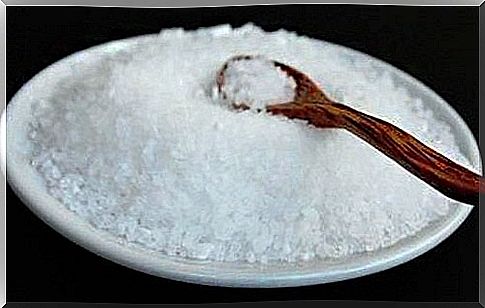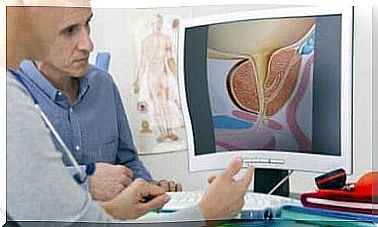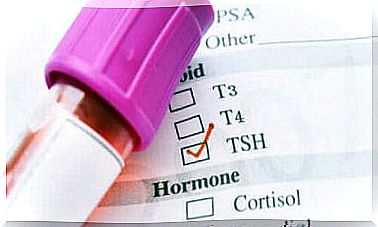Magnesium Deficiency: How To Treat It

Magnesium deficiency affects many people around the world, and many don’t even know they suffer from it. Magnesium deficiency can lead to a variety of symptoms and health problems that may be easily ignored or confused with other problems.
Even healthcare workers can sometimes inadvertently fail to examine a magnesium deficiency, and think the patient’s illnesses and problems are due to something else.
What is magnesium?

Magnesium is one of the most important minerals in life and is the fourth most common mineral in the body. In addition to being a mineral, magnesium is also an electrolyte that helps prevent and control certain health problems, such as muscle cramps.
Electrolytes make muscle function efficient and ensure that the heart beats and the brain receives a variety of signals and stimuli. Magnesium is an important mineral in terms of body function and good health.
Magnesium is involved in, among other things, the construction of DNA, the genetic factors, the regulation of cellular metabolism, the activity of brain neurotransmitters and the smooth interplay of nerves and muscles.
There are 20 to 28 grams of magnesium in an adult’s body, half of which is inside the cells and almost half is bound to the bone.
Which vital functions are affected by magnesium deficiency

If the amount of magnesium in your body decreases, you may suffer from various symptoms that lower your quality of life and cause various problems.
Magnesium is needed for more than three hundred body functions, and plays a particularly important role in transmitting nerve impulses, regulating body temperature, cleansing the liver, and forming bones and teeth.
Magnesium also plays an important role in the functioning of the circulatory system, as it prevents the formation of clots, relaxes blood vessels, thins the blood and reduces the risk of heart disease.
There are sports drinks available in the market that are claimed to contain a lot of electrolytes to improve recovery and performance. The labels of the beverages list that they contain e.g. magnesium, potassium and sodium, three minerals that are lost from the body as a result of sweating and sports.
Lack of these minerals often leads to muscle cramps and other problems, but sadly, sports drinks are also often full of sugar and do not give the body the nutrition it needs, regardless of the promises of the label.
Magnesium deficiency and its symptoms
Usually, magnesium deficiency manifests as physical and mental symptoms. The most common symptoms are:
- Constipation
- High blood pressure
- Anxiety
- Depression
- Behavioral problems
- Impaired memory performance
- Difficulty sleeping
- Muscle cramps
- Chronic back pain
- Headache
- Migraine
- Muscle pain
- Aggressive behavior
- Loss of consciousness
- Tension
- Obsessive-compulsive disorder
- Chronic fatigue syndrome
- Fibromyalgia
- Heart disease
- Palpitations
- Diabetes
- Sudden death from heart disease
- Kidney stones
What causes magnesium deficiency?

There are many reasons why the body may not get enough of the magnesium it needs. The first reason is found in a diet that runs out of important magnesium-containing foods.
Many of us eat unhealthily because we are not always in a hurry to make the best choices when it comes to eating. Another reason is the stress to which we are exposed more and more because of work, environmental pollution, technology and noise pollution.
A busy life with not enough time for everything leads to an increase in stress levels and poor eating decisions; this creates a disgusting vicious circle.
The hormones that the body produces when it is stressed require a lot of magnesium to make. This leads to a decrease in magnesium stocks. Magnesium is also removed from the body if a lot of sugar is ingested.
The body needs up to 54 magnesium molecules to process one sugar molecule. It is therefore advisable to avoid excessive sugar intake. Modern changes in food preparation and cultivation, ingestion of regular medications such as birth control pills, antibiotics, cortisone and prednisone further reduce the amount of magnesium in the body.
Where can I get magnesium?
There are many natural ways to increase the amount of magnesium in the body. In Finland, the recommended intake is 350 milligrams for men and 280 milligrams for women. In theory, a woman could get the amount she needed from one hundred
grams of almonds. Try these tips:
- Eat more foods that contain magnesium. It is most abundant in bran, grains, beans and nuts but in practice good sources are whole grains, dark green vegetables, potatoes, fruits, berries, dairy products and meat.
- Enjoy magnesium ions in drops.
- Use magnesium oil on the skin (magnesium is effectively absorbed through the skin and directly affects, for example, sore muscles).
- Take a bath in magnesium sulfate (Epsom salts). The bath soothes and relaxes the muscles, and a lot of magnesium is absorbed through the water.









